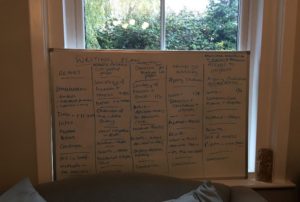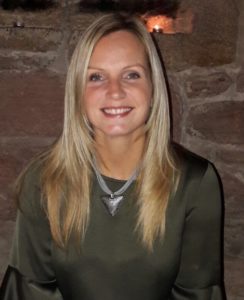 My viva was over, minor corrections corrected and my final thesis handed in. I felt a sense of achievement and an overwhelming relief that writing was finished for now. I could move forward with my job as a research fellow without the fog of my PhD hanging over me. I knew I would need to turn my thesis into publications soon but figured I would take a few weeks break. I mean how hard could it be?
My viva was over, minor corrections corrected and my final thesis handed in. I felt a sense of achievement and an overwhelming relief that writing was finished for now. I could move forward with my job as a research fellow without the fog of my PhD hanging over me. I knew I would need to turn my thesis into publications soon but figured I would take a few weeks break. I mean how hard could it be?
After a few weeks break from writing I began to feel the pressure to write. I sat down at my desk, opened my laptop and thought to myself, which paper shall I write first? The initial confidence soon turned into frustration and annoyance. I hadn’t envisaged the game I would begin playing with myself, similar to that of a cat chasing its tail. Each time I would sit down to write, I would begin procrastinating, flitting from one paper to another, thinking one might be easier to write than another. I just needed to get the first paper written. I knew the paper I wanted to write, I had identified the journal I would write it for, I had looked at the conventions of the journal and had identified a few papers I liked the look of which had been published in that journal. It was around 6 weeks later I realised my papers were getting nowhere.
I had written lots of titles of papers thinking this would be useful. I had written the methods section in all of the papers thinking this would produce some supercharged dynamic mechanism for writing however, dividing up my thesis was more difficult than I had imagined it would be. Why did this feel so hard? I knew what I wanted to write, I had the words, 75,000 of them! How could I not turn what I knew, what I had already written about and what I had spent the last 3.5 years totally immersed in into a journal article? I only had to find 8000 words! I was stuck, it felt as though I was holding myself back and couldn’t see a way out.

I decided I needed some guidance. I booked an appointment with the university library service who offered help with academic writing. I would urge anyone who is struggling with writing to do this, it was so helpful. After discussing the problems I was having I was told that; 1) slicing up a thesis is difficult, 2) the author of a thesis may be too involved, and 3) develop a writing plan.
We discussed the difficulties in authorship, the responsibility of second authors and what joint authorship meant to us, we talked about books versus articles, the all-important Research Excellence Framework, and various other topics. I think the most useful piece of advice I was given and the one I want to emphasise here, this was to map out a writing plan (not simply create a table with the papers I wanted to write). Similar to my PhD thesis it was important to write a plan tracking what papers I would write (like the chapters of my PhD). I put this down on a white board outlining what each report/article would contain.
This was useful as I could cross sections off when completed and it would stop me from drifting into other areas of my thesis. It kept me focused on the job in hand. It also reminded me that by mapping out what I needed to do and splitting it into sections, the task felt much more manageable. I was also advised not to read and write, something I seemed to have a tendency to do even though I knew it prevented free writing. Was this a form of procrastination? Quite possibly. That and the multiple cups of tea!
My advice to anyone struggling to turn their thesis into journal articles is to make an appointment with someone who is not directly involved. The university librarians offer lots of support, you just need to ask. Making the appointment to speak to someone about my writing problem was a great first step. I is amazing how an outsider can remind you of the useful strategies you already know! I have very nearly finished the first writing task on my white board, just the proofreading to do before I place a nice big tick on the whiteboard to show my progress. I am now looking forward to starting the next paper.
Author

Dr Kellyn Lee
Dr Kellyn Lee has recently completed her PhD at the University of Southampton, her work focused on exploring object-person relations by examining how decisions were made about personal possessions and by whom; how functional objects were used in everyday life and by whom; and whether a material lens was useful in locating social citizenship in an institutional setting. Following completion of her PhD, Kellyn was awarded funding to collaborate with a care organisation to develop a conceptual framework ‘Material Citizenship’ into practice..

 Print This Post
Print This Post




